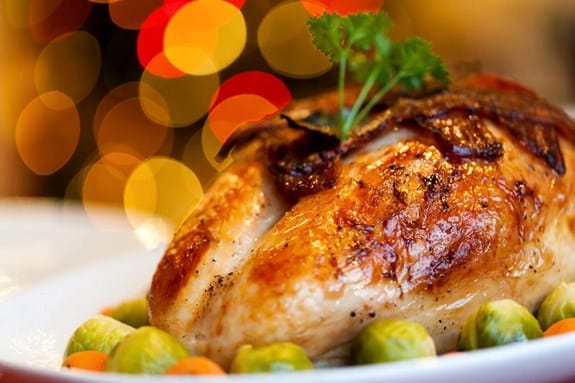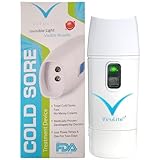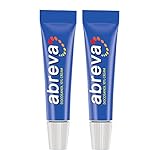Understanding the connection between cold sores and amino acids is very important. Arginine is a part of the diet that experts believe can activate herpes simplex one. A few days later, this results in the appearance of ugly skin lesions that cause so much pain and embarrassment.
Arginine does play a significant role in the body, particularly concerning the flow of blood. But, it’s widely accepted that the consumption of arginine should be kept to a minimum if you regularly get cold sores. This could mean that you need to change or modify your diet plan.
We’ll now provide an overview of arginine, how it reacts in your body, why it awakens the herpes virus, and what you can do to reduce its impact.
What Does Arginine Do to the Body?
Arginine is an amino acid that enables the body to build protein.
Produced naturally within the body, arginine is also found in foods that are high in protein. The most common sources include red meat, poultry, fish, whole grains, dairy, etc. Arginine can also be consumed in supplement form and/or applied to the skin as a topical agent.
Arginine stimulates and dilates blood vessels. This means that arginine can be used to treat a host of medical conditions.
How is Arginine Beneficial to Cold Sore Sufferers?
Arginine is not universally beneficial to cold sore sufferers.
In fact, a substantial intake of arginine can activate herpes simplex one. While that doesn’t mean that you’ll definitely get a cold sore, the likelihood unfortunately dramatically increases.
The best way to look at arginine is that of any other known trigger (hot weather, extreme wind, mouth trauma, immune health weakness caused by sickness, etc.) It’s unlikely for arginine to be helpful in the cold sore treatment, but it’s not certain to cause you problems.
If you carry HSV-1 and have high blood pressure, arginine can still be beneficial. It can help to dilate the blood vessels, thereby reducing blood pressure and improving your health. Improved immune health can keep cold sores away. The relationship can be complex.
It has genuine health benefits and fulfills a valuable function in the human body.
What are the Side Effects of Arginine?
Arginine is deemed safe, but there are minor side effects and safety warnings to heed.
If you are currently taking blood pressure medication, it is important that you tell your doctor before consuming oral arginine.
Possible side effects include…
- Abdominal pain
- Bloating
- Nausea
- Diarrhea
- Labored breathing (worsening of existing asthma symptoms)
- Gout
Safety notes…
- Do not consume arginine supplements after a heart attack.
- Use arginine with caution if you have allergies or asthma.
- Limit your intake if you have HSV-1. Too much can be a trigger.
Why Does Arginine Awaken Herpes Simplex One?
Arginine exacerbates the replication and growth of a once dormant virus.
Because it is beneficial to the stimulation and dilation of blood vessels, it can also “breathe life” into dormant HSV-1. Although the process is not entirely understood, arginine, whether via foods or otherwise, often has a negative impact on herpes simplex one.
Without arginine, the virus and its cells are unable to complete a full replication cycle. The objective is to minimize arginine through your dietary selections whenever possible.
Is Arginine the Cause of Cold Sores?
While arginine is not the cause of cold sores, it is one of the many agitators of the virus.
Due to strong immune health, herpes simplex one is able to exist in a dormant state. Your body, when healthy, is in a battle to keep the virus at bay.
By thinking of arginine as an “evil accomplice,” you can understand the negatives that arginine poses to viral carriers. It is the amino acid that potentially stimulates the growth and development of fever blisters.
Can Arginine Reduce the Effectiveness of Medications?
It can reduce the effectiveness of cold sore medications. Promoting viral growth and replication, arginine is the ultimate anti-medication.
While it will not render all medications useless, you may find that outbreaks occur much sooner and more often, even if you apply/take medication.
In the same way that medication can only treat a cut as long as the wound remains closed, the same logic can be applied to arginine and medications.
The only way to ensure effectiveness is to reduce your arginine intake drastically. This typically requires a change in dietary regimen.
Which Diet Plans Contain the Most Arginine?
Certain foods contain more arginine than others. Obviously, the foods that contain the most arginine should be avoided if you want to decrease the frequency of cold sore outbreaks.
Let’s take a closer look at five of the harshest foods:
- Nuts are rich in arginine and should not be consumed if you are susceptible to cold sores. Although healthy, peanuts, hazelnuts, and walnuts will fuel development and replicate existing viral cells.
- Chocolate is packed with arginine. While dark chocolate is considered to be less of a problem than milk chocolate, it should still be avoided.
- Wheat isn’t a good option. It is found in many common foods (bread, pasta, and a wide assortment of baked goods). Wheat consumption can be hard to avoid unless you’re really on top of your dietary plan.
- Pumpkin seeds, similar to nuts, are really high in arginine. While not common in main course dishes, pumpkin seeds are often consumed as a healthy snack. If pumpkin seeds are a regular staple of your diet, it is vital to make the appropriate dietary modifications.
- Stay away from squash (the vegetable) if you want your cold sores to remain dormant. Whether eaten individually or in a casserole, it’s argued that squash should typically be avoided.
Obviously, this is just a small selection of foods that you ‘may’ wish to avoid. The vegan diet can be bad for cold sores. Since most selections are rich in arginine, it is vital to make some strategic dietary adjustments.
The consumption of foods that are high in lysine (or supplements) is believed to counteract the arginine that is found in most vegan meal selections.

What’s the Connection between Lysine and Arginine?
While arginine is can be a cold sore trigger, lysine is an amino acid that can help you.
Found in various food selections such as red meat, poultry, and fish, lysine is also available in supplement form or can be applied to the skin topically as a lysine cream or lysine lip balm.
By most accounts, lysine’s primary benefit is that it’s a cold sore remedy and/or preventative treatment. Lysine is believed to slow the growth and replication of viral cells.
The objective is to consume more lysine and less arginine. Many people who get cold sores adhere to a strict lysine-to-arginine ratio.
Is the Lysine-to-Arginine food ratio useful?
The lysine-to-arginine chart is a worthwhile guide. The reason the guide is not foolproof is that the virus behaves differently in different people. We all respond in our own way.
Although foods that are heavy in arginine ‘should’ present a problem for all cold sore sufferers, this isn’t always the case. The outcome is, at best, inconsistent. It is possible to consume a lot of chocolate, for example, and not experience an outbreak. Others will be affected more severely.
While the consumption of arginine-rich foods is not recommended, as per medical science, there is nothing to suggest an outbreak is inevitable. On the contrary, consuming a diet that is high in lysine and low in arginine is not guaranteed to keep you safe from an outbreak.

The chart provides a ‘fair warning’ based on lysine-to-arginine percentages that are found in various food selections. The chart, at best, can help you to avoid foods that are known triggers.
If you adhere to the vegan diet, the chart will likely prove to be a solid tool. Because most of the vegan diet involves foods that are rich in arginine, the chart can help you to discover vegan-friendly foods that contain more lysine. This can prove to be an excellent way to balance out your nutritional needs.
What Food Should I Eat?
Arginine is medically accepted as being a dietary negative. But, you should never be quick to include or exclude a food type from your diet without understanding how it specifically affects you.
Certain vegetables, although healthy, can be a trigger for cold sores because of their high arginine percentage. That is why striking a healthy nutritional balance is so important. There are, of course, vitamins that are good for cold sores.
Knowing your ‘problem food’ is what separates you from a medical statistic. There is no reason to eliminate a food from your diet based on a widely held negative perception. Adjust your diet based on how your body responds, not someone else’s body.
Take a look at a few options before for proven over-the-counter cold sore treatment.
Last update on 2024-04-28 / Affiliate links / Images from Amazon Product Advertising API

